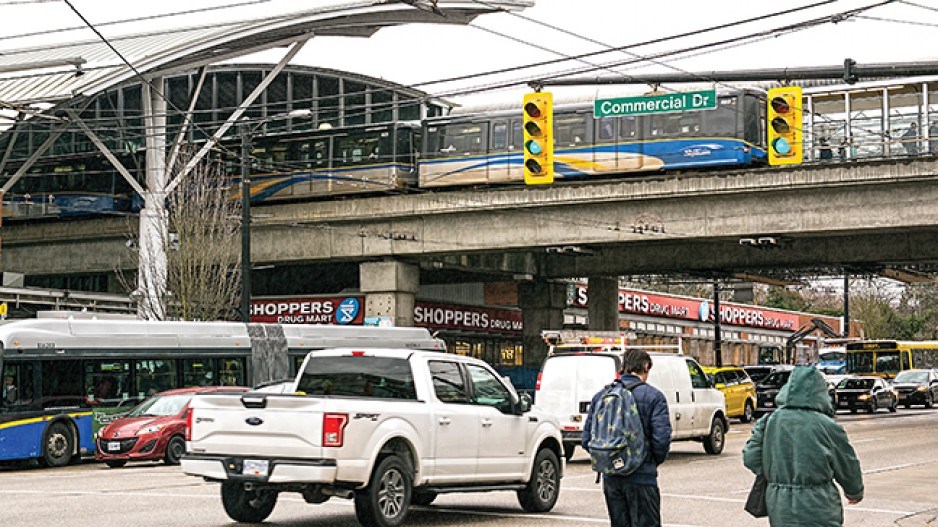After enduring a static 2017 that had many overdue transportation infrastructure projects sitting in neutral, Vancouver residents are hoping this year will see public needs put into first gear.
With the success of the Millennium Line Evergreen Extension, commuters and businesses alike are anxiously awaiting an update on the next major transportation project in one of Canada’s busiest corridors: the Broadway Extension.
At the Association of Consulting Engineering Companies British Columbia (ACEC-BC) conference in January, John Eastman, president of JE Project Solutions Ltd., said the future Broadway line “will follow the same standards, same vehicles, same loading, same clearances and the same train control” as the Expo Line, the oldest running portion of the SkyTrain system.
“We have the opportunity to look at new technology, different vehicles, but when you are extending an existing system, you are tied very much to a technology you’ve already adopted and used.”
While many have speculated or hoped there would be upgrades to the existing Expo Line, industry professionals seem to be focusing on the future rather than on the past.
“I don’t think there is anything that is proposed for upgrading the Expo Line but, of course, the technology side, the train control, the computers, all those things are developing all the time,” Eastman said. “Most of the improvements are back at the control centre, and you don’t really see them.”
The sentiment was further supported by ACEC-BC president and CEO Keith Sashaw, who also mentioned that, though still uncertain, there may be a possibility of introducing longer trains on the Expo Line.
When asked if he thought there would be any changes to the line itself, Sashaw was fairly conclusive.
“I don’t think so. It seems to be functioning very well and meeting expectations.”
The main difference between the Expo Line and the Broadway Extension, according to Eastman, is that the Broadway line’s tracks will run side by side with a platform in between, as opposed to on top of each other.
When asked about the main challenge holding back progress on the Broadway line, Sashaw was hardly coy: “Cost,” he said.
“How do you build this with as little disruption as possible? And that is always the challenge when you talk about building. There was such an impact to the businesses on Cambie Street when the Canada Line was built, and the loss is still reverberating today.”
The resounding issue with construction of the Canada Line was the effect it had on local businesses.
Since 2014, Vancouver Mayor Gregor Robertson has said the Broadway line would be built using bored-tunnel construction. Though more expensive, the bored-tunnel method is far less disruptive to businesses and traffic.
The Canada Line was built using the less expensive cut-and-cover method. The disruption and disarray of the project resulted in numerous class-action lawsuits by individuals and businesses.
“We want to avoid all that and do this in a different way,” Sany Zein, vice-president of infrastructure management and engineering at TransLink, said at the ACEC-BC conference.
“The technical team has been working very hard to figure out how [the line] can be built, how the stations can be built, how the access points can be built by minimizing disruption on the surface,” Zein said. “That will be absolutely one of the key challenges in delivering this project in a way that gains, maintains and allows the public to be on board.”
As to the progress of the line, Zein seemed confident the project was on the right track.
“We are about 80% to 85% of the way on the funding deal, with the province having funding commitments at the table, the federal government having funding commitments at the table, and we are working really hard to close that last remaining funding gap so we can launch this project.”
In addition to work on the funding agreements, environmental reviews are currently in progress on the Broadway project and will continue until about midway through the year, according to Zein.
“Once funding is secured, we see 2018 and 2019 as being the two procurement years. We anticipate construction to start in 2019 and the trains to start running in 2025.”
Zein did clarify that the first phase of the extension is approximately 5.7 kilometres, from VCC-Clark station to Arbutus Street. A future project, currently unfunded, would extend rapid transit service to the University of British Columbia.




